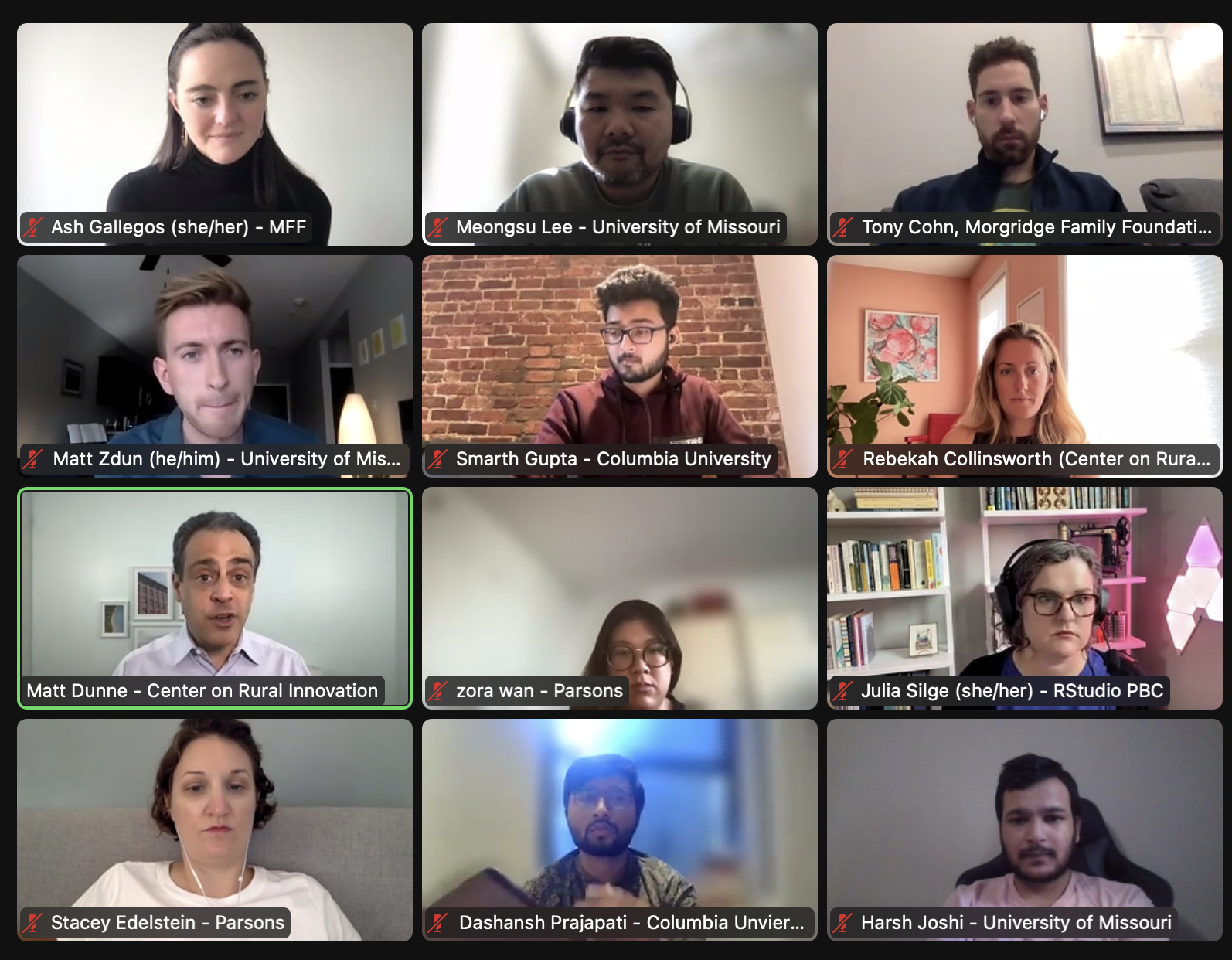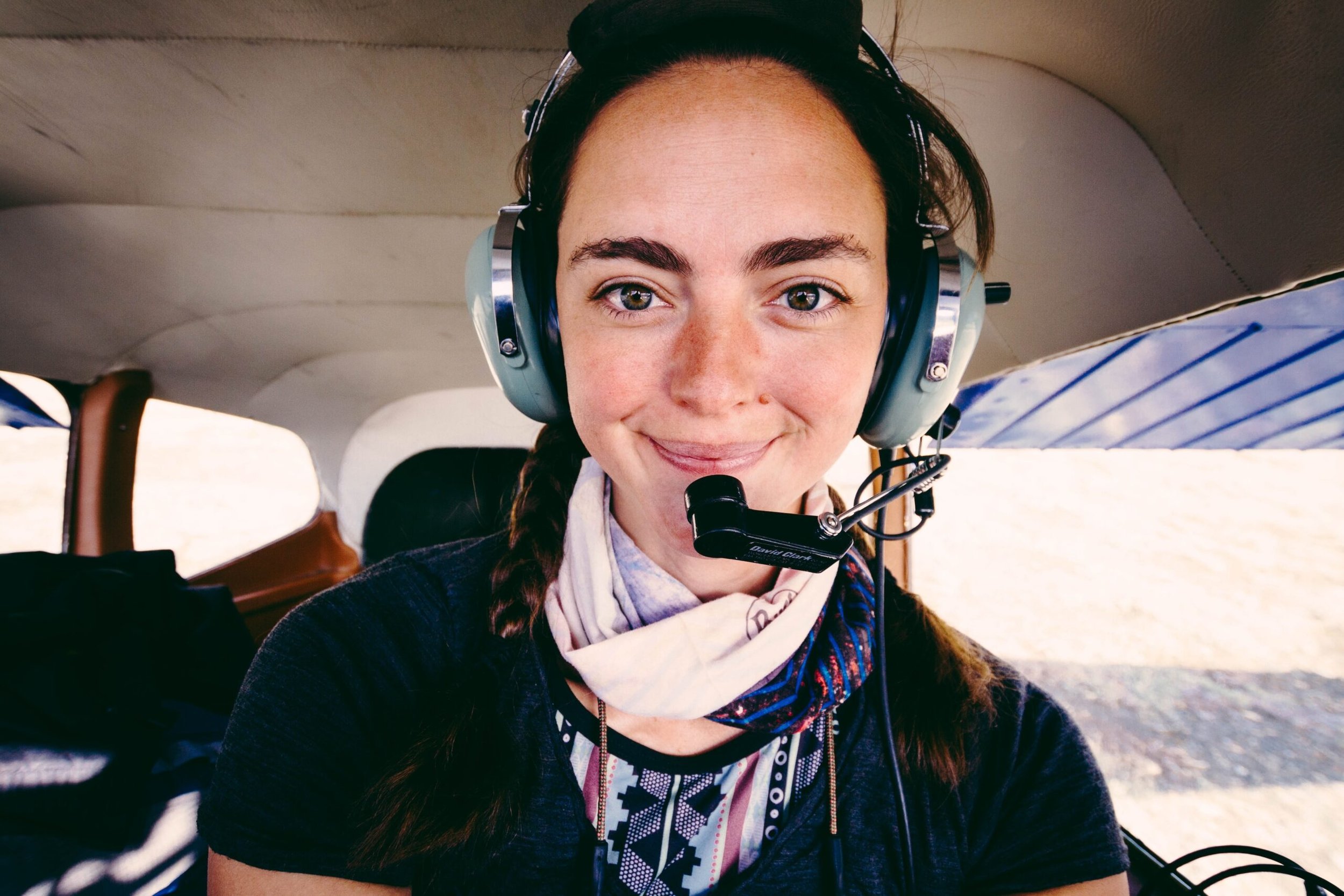Behind the scenes of the 2022 MAP Project48 competition
This year, the Morgridge Acceleration Program (MAP) partnered with the Center on Rural Innovation (CORI) and three graduate data science programs from Columbia University, Parsons School of Design and the University of Missouri – Columbia to hold the first ever MAP Project48 competition, a 48-hour impact-athon.
In just two days, MAP Project48 provided each graduate student teams with mentorship and exposure to the rewarding nature of social impact; all while they built their portfolios, grew their network, and put their skill sets to use.At the same time, the competition created an immediate and much-needed solution to a problem facing MFF’s nonprofit partner, CORI, which gained new data visualization capabilities and innovative perspectives from the student teams.
Let’s dive into our first ever MAP Project48 competition!
All three teams met with CORI leadership to learn more about the challenge. Then, they were introduced to expert practitioners, the MAP Project48 Mentors, who would be available to coach students throughout the impact-athon. While the event was virtual, the energy of the student teams was palpable– as was their drive to build the strongest and most impactful deliverable possible.
As CORI explained, data on rural places is notoriously hard to find and use. Without accessible data, organizations and governments in rural areas struggle to justify new initiatives and drive economic development. CORI fills this gap as a leader in rural mapping and data analysis, providing previously unavailable tools and information to researchers, policymakers and other rural stakeholders. But they needed additional capacity to create a tool to demonstrate that thriving digital economies are the key to strong rural futures.
Each student team was charged with building a “data visualization cookbook.” This tool would simplify the process of creating clear, consistent, and high-quality visualizations that accurately reflect the organization’s brand and voice. As a result, the organization could effectively communicate the potential of rural America to policy makers, journalists, philanthropists, and general audiences.
The teams had the opportunity to ask questions to CORI’s leadership and dig into information they had been provided before getting to work and collaborating with each other and the MAP Project48 Mentors.
The three MAP Project48 Mentors are leading experts in the world of data visualization, data science, and data-driven storytelling. They included Matt Daniels of The Pudding, Stacey Edelstein of Raygun and Julia Silge of R Studio PBC, learn more about the Mentors and their background on MFF’s Instagram. They served as sounding boards, sources of information and cheerleaders to the teams.
Mentors, teams, and CORI and MFF staff rounded out day one with a virtual ramen cooking class.
On Friday, the timer was set for 48 hours. Teams met via Zoom and chatted over Slack. The collaboration was unlimited – each team and each student brought unique strengths and everyone worked together to create the best possible final product for CORI.
Every participant was encouraged to take screen breaks throughout the day and were sent goodie bags to make those moments more fun, including some of their favorite snacks.
Some teams went above and beyond and met in person to work on their solutions, like the Columbia University team in New York City.
On Sunday, it was time to prepare for the final presentations. Teams worked with Dafna Michaelson Jenet, a state representative in Colorado and TEDx Organizer, to practice and perfect their presentation skills. Then, it was time to share their hard work.
The teams presented their final products to a panel of judges featuring Matt Dunne, executive director and founder of CORI; Carrie Morgridge, vice president of MFF; and Adam Robinson, vice president of corporate social responsibility at ViacomCBS. The judges were responsible for choosing the final winner – and they could not have faced a tougher choice.
Every team’s final presentation was phenomenal and all will help to advance CORI’s ability to effectively tell data-driven stories and drive economic development in rural communities. Professionals from Smithsonian Institution, The Jane Goodall Institute, MIT Solve, American Bar Association, Instagram, The Climate Initiative and more, tuned in to cheer teams on and learn from the innovations they had created.
There could only be one winner, though, and it was the team from the Data Science Institute at Columbia University. Their solution most effectively connected ease of use, innovative design and comprehensive options to give CORI a data visualization tool their entire team can immediately use. The impact of all three team’s work will be immense.
MAP Project48 built on the strong community created by past and present Fellowship cohorts. Whether individuals of this community pursue a career in the social sector or not, they are all connected by a mutual desire to make a difference, become the best leaders they can be and lift up those around them.




